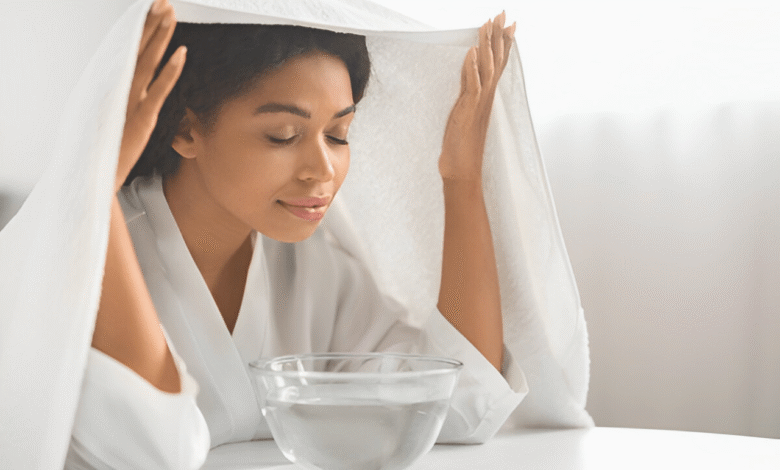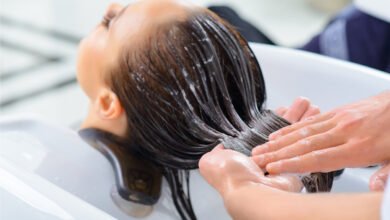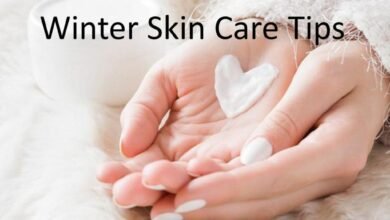7 Natural Beauty Hacks Dermatologists Secretly Use
Discover dermatologist-approved natural beauty hacks for glowing skin 7 expert secrets using simple ingredients for professional results at home.

Dermatologists know that Natural Beauty Hacks can be just as effective as expensive treatments if you know which ones to use. While many people spend fortunes on skincare products, experts often rely on simple, science-backed natural remedies to maintain radiant, healthy skin. These secret techniques harness the power of botanical ingredients and holistic practices to address common skin concerns without harsh chemicals or side effects.
From kitchen ingredients to ancient skincare rituals, these dermatologist-approved Natural Beauty Hacks are easy to follow and deliver visible results. Whether you struggle with acne, dryness, or premature aging, incorporating these natural solutions into your routine can help you achieve a flawless complexion just like the pros do. Keep reading to discover the top seven natural beauty secrets that dermatologists swear by but rarely share.
7 Natural Beauty Hacks Dermatologists Secretly Use
Use Green Tea as a Toner
Apply Aloe Vera for Hydration and Healing
Aloe vera is a dermatologist favorite due to its healing and moisturizing properties. It contains vitamins, enzymes, and amino acids that promote skin repair and hydration. Applying fresh aloe vera gel directly from the plant can help with sunburn, acne scars, and dryness. Unlike commercial moisturizers that may contain alcohol or fragrances, aloe vera is gentle enough for sensitive skin. It also has anti-inflammatory benefits, making it ideal for calming rosacea and eczema flare-ups.
Exfoliate with Honey and Oatmeal
Physical exfoliants with harsh beads can damage the skin barrier, but a natural scrub made of honey and oatmeal provides gentle exfoliation. Oatmeal soothes irritation, while honey acts as a natural humectant, locking in moisture. Mix ground oatmeal with raw honey to create a paste, then massage it onto damp skin in circular motions. This DIY exfoliant removes dead skin cells without stripping natural oils, leaving your skin soft and glowing.
Use Coconut Oil as a Makeup Remover
Instead of chemical-laden makeup removers, dermatologists suggest using coconut oil to dissolve makeup and impurities. Its lauric acid content helps break down stubborn mascara and sunscreen without irritating the skin. Gently massage virgin coconut oil onto dry skin, then wipe it away with a warm cloth. This method not only removes makeup but also nourishes the skin, leaving it soft and supple.
Incorporate Rosehip Oil for Anti-Aging
Rosehip oil is a powerhouse ingredient rich in vitamins A and C, essential Fatty acid ,and lycopene. Dermatologists often recommend it for anti-aging because it boosts collagen production and fades dark spots. Apply a few drops of cold-pressed rosehip oil before bedtime to improve skin elasticity and reduce fine lines. Its non-comedogenic nature makes it suitable for all skin types, including acne-prone skin.
Boost Skin Health with a Turmeric Mask
Turmeric has been used for centuries in Ayurvedic skincare due to its anti-inflammatory and antibacterial properties. A turmeric face mask can brighten dull skin, reduce acne, and even out skin tone. Mix turmeric powder with yogurt or honey to create a paste, apply it for 10-15 minutes, then rinse off. This natural treatment helps fade hyperpigmentation and gives the skin a healthy glow.
Stay Hydrated and Eat Skin-Friendly Foods
Dermatologists emphasize that hydration and diet play a crucial role in the skin health. Drinking enough water keeps skin plump, while foods rich in omega-3s, vitamins C and E, and antioxidants support collagen production. Incorporate avocados, berries, nuts, and fatty fish into your diet for a natural, radiant complexion. Avoiding processed sugars and dairy can also help reduce breakouts and inflammation.
Challenges of Natural Beauty Hacks Dermatologists Secretly Use
Unpredictable Results from Natural Ingredients
The potency of the botanical ingredients like aloe vera or turmeric varies by source and preparation method. Without standardized concentrations, results may be inconsistent compared to clinical skincare products.
Potential Skin Irritation and Allergies
Some natural ingredients (citrus oils, undiluted essential oils) may trigger allergic reactions or sensitivity. Patch testing is crucial, especially for those with reactive or eczema-prone skin.
Shorter Shelf Life of DIY Products
Homemade masks and the serums lack preservatives, spoiling faster than commercial products. Improper storage can breed bacteria, increasing infection risks for acne-prone skin.
Messy Application and Time-Consuming Prep
Blending fresh ingredients like oatmeal or avocado requires time and cleanup. The convenience of the ready-made products often outweighs DIY efforts for busy lifestyles.
Limited Scientific Backing for Some Remedies
While some Natural Beauty Hacks(green tea antioxidants) are research-backed, others lack clinical studies. Users may waste time on trends without proven efficacy for their skin concerns.
Difficulty Targeting Specific Skin Issues
Unlike prescription treatments, natural remedies often provide general benefits rather than focused solutions for the severe acne, wrinkles, or hyperpigmentation.
Risk of Over-Exfoliation or pH Imbalance
Many natural exfoliants like sugar, salt, or baking soda have irregular edges that can cause micro-tears in the skin, leading to irritation and compromised skin barriers. Additionally, DIY ingredients often disrupt the skin’s natural pH balance – for instance, lemon juice (highly acidic) or baking soda (alkaline) can trigger redness and sensitivity. Without proper formulation knowledge, these well-intentioned Natural Beauty Hacks may do more harm than good, especially for those with delicate or acne-prone skin.
Read More: Breakthrough Medical Devices: Transforming Recovery After Surgery and Injury
Conclusion
Dermatologists have long relied on these Natural Beauty Hacks because they deliver real, lasting results without compromising skin health. By incorporating these simple yet powerful techniques into your routine, you can achieve a radiant complexion while avoiding harsh chemicals and expensive treatments. The best part? Most of these secrets use ingredients you likely already have at home, making glowing skin more accessible than ever.
Remember, consistency is key when it comes to the Natural Beauty Hacks. Whether you’re using green tea as a toner or aloe vera for hydration, give these dermatologist-approved remedies time to work their magic. Your skin will thank you for embracing these gentle, effective solutions that have been trusted by skincare experts for generations. With these natural beauty hacks in your arsenal, you’re well on your way to healthier, more vibrant skin naturally.
FAQs
Can green tea toner replace my regular toner?
Yes, green tea toner is a great natural alternative that soothes and protects the skin without harsh chemicals.
Is coconut oil suitable for oily skin?
While coconut oil works well for many, those with extremely oily skin should patch-test first, as it may clog pores for some.
How often should I use a turmeric mask?
Using a turmeric mask 1-2 times a week is ideal to avoid staining and its over-exfoliation.
Can rosehip oil help with acne scars?
Yes, the rosehip oil promotes skin regeneration and can fade acne scars over time.
What’s the best way to store aloe vera gel?
Fresh aloe vera gel should be refrigerated and used within a week for the maximum benefits.











